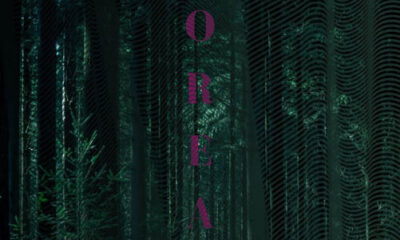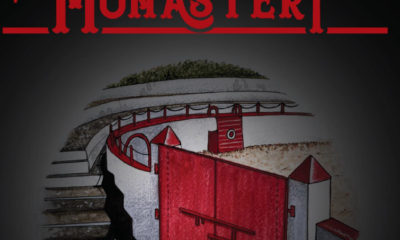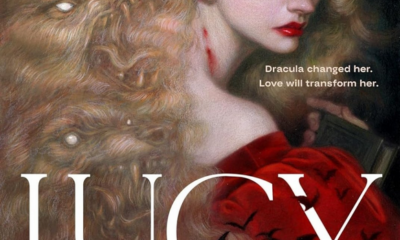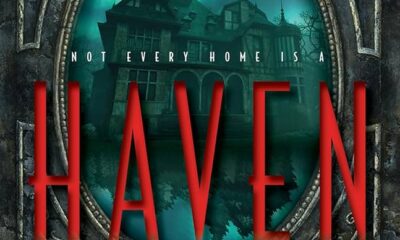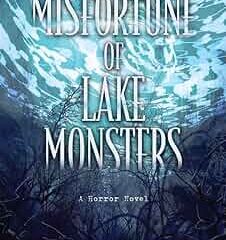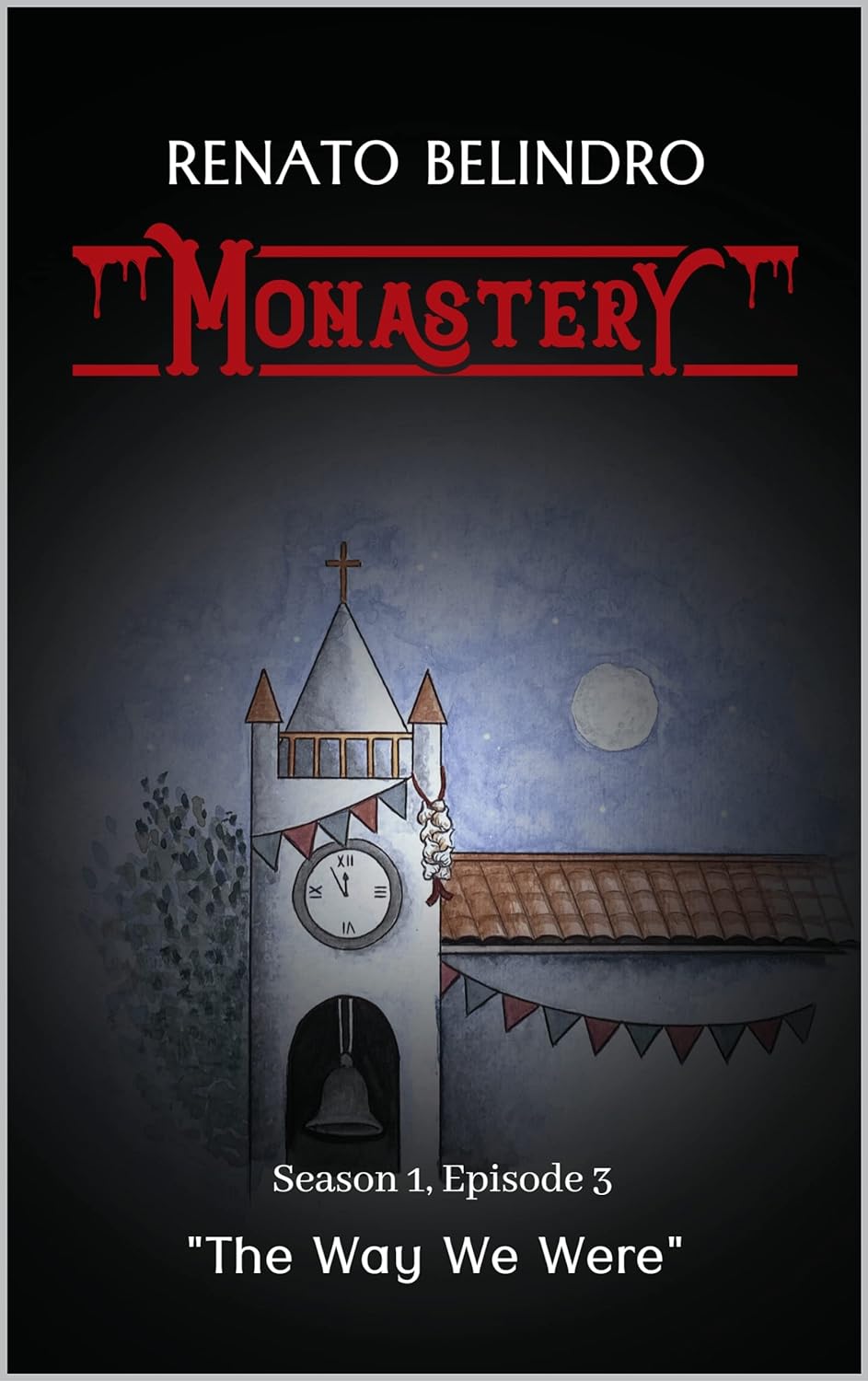
Monastery Series 3: a Book Review
The time has come for another installment of our resident mystery novel Monastery. We continue to follow our set of characters trying to uncover the secrets of their grandfather’s murder. Too bad members of their family are going to great lengths to stomp their efforts. Anyway, enough rambling, let’s begin!
Plot
We start this part of Monastery with our crew coming to a simple conclusion – they must seek answers wherever possible. What better place to find them than visiting Albert’s sister? It’s a shame they’re not going to the Old Farm, there would definitely be some answers there. Francis’s character development is quite intriguing to me. He’s clearly uninvolved in the cover-up and yet there seems to be a lot of understated trauma. One can only wonder if it will all boil to the surface.
While I know some people don’t enjoy flashback sequences, Albert’s trip down memory lane provided some nice characterization for me. It’s his story after all, and even though his and Cassandra’s relationship is far from #goals, it’s complex and interesting. I also enjoyed his commentary on selective memory, I feel like that applies a lot to our daily lives.
David and Nicole’s dynamic is also explored more. The pairing bond over their taste in music and share a kiss after he helps her recover from a werewolf attack (yes, you heard that right, and I want to know more immediately). Tensions between them rise further to the point where she actually considers breaking up with Fred. That is, until he pulls a grand gesture (something David was advised to do). While I don’t condone cheating or flirting with someone to make your partner jealous, those are all love triangle tropes and this one is in full swing.
Things escalate further at the town’s raffle draw party when Aunt Doris shows up and gets paid off by Cassandra. While I’m not certain how I feel about her character, she does provide the group with valuable information – Albert’s cause of death was faked. Of course.
We end this installment of Monastery on a bit of a harrowing note. Cassandra abuses her own son in front of Henry, who is left completely traumatized. This stuck out to me as a change in tone and I wonder how much darker it will get. We’ll find out soon…
Overall thoughts
This part of Monastery focuses a lot on Albert’s youth and the love triangle between David, Nicole, and Fred. While some people would say it’s unnecessary, I think the additions, especially the romance, both keep the pacing so we don’t fly through the mystery too quickly and lighten the mood a bit. Not to mention there is some interesting characterisation brought to light because of this. The questions are still piling up and I can just feel we’re on the cusp of things hitting the fan. I can’t wait for more.
 (5 / 5)
(5 / 5)
Read further for some insight from the author himself:
- 1. Last time I asked you how you integrate comedy into your writing. How about romance? How do you pick the moment that feels right to sprinkle some spice into the story without turning it into a full-blown chick flick? Do you have a personal preference of who you would like Nicole to end up with (if you can share)?
Funny you should ask about picking the right moment because David originally kissed Nicole in episode 1, but it felt rushed then, so I ultimately moved it to this third episode. I always knew there would be a romantic triangle, trite though it may seem, because at its heart this story is very soapy. As for when the right moment is, the story itself always tells me that, but have no fear, the murder mystery will always be at the center of everything.
Also, who do I think Nicole should end up with? I think she needs to work on loving herself a bit more. It may seem she loves herself a bit too much, at surface level, but do read on.
2. There is no doubt Cassandra is a bitch and a murder accomplice (if not the murderer). However, you are showing the readers layers of her character (such as her being abused as a young woman). Is this something that will be relevant in the story later on or just a device to provide her character with some humanity?
Relevant. So, so relevant. There are many glimpses of Albert’s past throughout the series, but the events surrounding St. John’s Party in 1976 compose the main flashback thread. I want to believe there is great re-read value to my story, as there are so many clues and little elements spread throughout, things you might only catch on to when you have the full picture. I mean, the werewolf’s identity is revealed in every episode they feature in – it’s just a matter of knowing where to look for it! As for Cassandra, in my opinion, she is the best character, and I am so excited for people to dive into her story.
Book Reviews
A Stellar Debut Novel, We Used To Live Here
Imagine this. You’re home alone, waiting for your partner to return, when you hear a knock on your door. You answer it to see a family of five, bundled up against the cold. The father, a kindly older gentleman, explains that he used to live in this house as a boy. And he would love to show it to his family.
Do not let them in.
The story
Released in June 2024, We Used To Live Here is author Marcus Kliewer’s debut novel. It tells the story of Eve, who just purchased a beautiful house with her partner, Charlie. Their plan is to flip the house and sell it.
One night, while waiting for Charlie to come home, Eve is surprised by a knock at the door. It’s a man named Thomas Faust and his family.
Thomas explains that he grew up in the house and hasn’t been in the area in years. Would Eve let them in so that he can show the home to his children?
Against her better judgment, Eve lets them in. She regrets this almost at once when Thomas’s daughter vanishes somewhere into the house.
What worked
I always appreciate a book that allows you to play along with the mystery. And this book does that better than just about any other I’ve seen.
Pay close attention to the chapters, to the words that aren’t there. To everything about this novel.
This is mostly down to Kliewer. This is ultimately his work of art. But the production value is also fantastic. I don’t want to ruin the multiple mysteries, so I’ll just say this. There are clues in this book that require some specific artistic choices in the page layouts in this book. And I loved that.
If you’d like to experience another horror book review, check out this one.
We Used To Live Here is also the kind of story that makes you question everything right along with the main character, Eve. Eve is a great main character. But she might be an unreliable narrator. She might be experiencing every single horror described, exactly as it’s described. Or, she might be having a psychotic breakdown. Through most of the book, we can’t be sure. And that is so much fun.
Finally, the weather plays a large part in this story. There are several stories in which the weather or the land itself could be considered a character. Even an antagonist. This is certainly one. The winter storm is the thing that traps the family in the house with Eve. It also makes escaping the home difficult. Reading this book during the winter was especially impactful. Most of us know what it feels like to be shut in by a storm. I’ve personally lived through some of those storms that are just referred to by their year, as though they were impactful enough to claim the whole 365 days for themself. And that was with people I liked. Imagine what it would feel like with strangers. It’s a staggering thought and one that we explore in depth in this book.
In the end, We Used To Live Here is a fantastic book. It’s the sort of story that sneaks into your brain and puts down roots. And if this is just the first book we’re getting from Kliewer, I can’t wait to see what else he comes up with.
 (5 / 5)
(5 / 5)
Book Reviews
Exploring real terror with The House of My Mother
As a disclaimer, this is a review of The House of My Mother from a critical perspective. I will not be discussing my opinions of the legal case against Ruby Franke and Jody Hildebrandt. I will be discussing the merits of the book as a work of true crime alone.
In 2015, Ruby Franke started a YouTube channel called 8 Passengers. In August of 2023, Franke and her business associate Jodi Hildebrandt were arrested for, and later plead guilty to, charges of aggravated child abuse. And in January of this year, Shari Franke told her story in The House of My Mother.
The story
The House of My Mother is the true story of Shari Franke, the oldest child of one of the most famous family vlogger families.
As a child, Shari came to the conclusion that her mother didn’t like her. Soon, she began to fear her mother’s anger.
Things got significantly worse when Ruby started their family vlog. All of the families most intimate moments were splashed across the internet for anyone to watch. This became a living nightmare for Shari.
Of course, that was only the start of the family nightmare. Because Ruby was about to meet someone who would reinforce all of the darkest parts of herself.
Eventually Shari manages to escape her home. But her younger siblings were still in her mother’s clutches. She had to save them, and her father, from the monster her mother had become.
What worked
Through the book, Shari only ever mentions the name of one of her siblings, Chad. This is because Chad is the only of her siblings that is an adult at the time of the publication.
There are children involved in this story. Children who’s lives and privacy have already been damaged. Shari didn’t want to do that to them again, and neither do I.
It probably won’t surprise you that this book is full of upsetting details. But not in the way you might imagine.
Nowhere in this book will you find gory details about the abuse the Franke kids suffered. And I consider that a good thing. Those sort of details are all fun and games when we’re talking fiction. When it’s real kids who are really living with the damage, it’s not a good time.
What you’ll find instead is a slew of more emotionally devastating moments. One that stuck with me is when Ruby’s mother gives her a pair of silk pajamas as a gift after Ruby gave birth to one of her babies. Shari asks Ruby if she’d bring her silk pajamas when she had a baby. Ruby responds that yes, when Shari becomes a mother they can be friends.
What a lovely way to make a little girl feel like she’s not worth anything unless she reproduces. And, if she does decide to have children, who is going to bring her silk pajamas?
In the end, this isn’t a story about ghosts or demons. It’s not about a serial killer waiting on a playground or in the attic of an unsuspecting family. Instead, this is a story about things that really keep us up at night. It’s the story of a woman so obsessed with perfection that she drove away her eldest daughter. The story of a young woman who’s forced to watch from afar as her beloved brothers and sisters are terrorized and abandoned. These are the sorts of things that really keep us up at night. These are the real nightmares.
More than that, though, The House of My Mother is a story of survival. It’s about a family that was ripped apart and somehow managed to stitch itself back together again. It’s about a brave young woman who managed to keep herself safe and sane in the face of a nightmare. If you haven’t read it yet, I can’t recommend it enough.
For more like this, check out my review of Shiny Happy People.
 (5 / 5)
(5 / 5)
Book Reviews
Book Review of Boreal: an Anthology of Taiga Horror
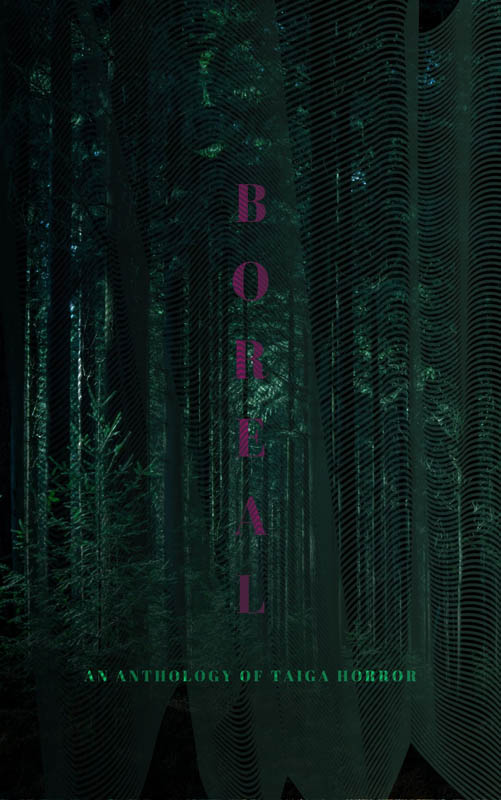
Boreal: an Anthology of Taiga Horror is a collection of twenty-two haunting tales that dwell in the deepest darkest woods and frozen wastelands, edited by Katherine Silva and including Haunted MTL’s very own Daphne Fauber. Each story has even been gifted with its very own poster, hinting at the horrors to be found within it, bestowing a beautiful visual collection as well.
The tales are varied and touch upon the environment in new and different ways, each hearkening to a sort of epiphany or raised awareness. These stories exude both dread and wonder at the smallness of our human existence in contrast to the sacred world we have isolated from, sheltering ourselves in our comfortable houses with centralized heat and everything we could possibly need or want at the ready. The taiga becomes a sanctuary outside of our own dulled awarenesses. It is a holy place imbued with powers beyond mortal human reach, a wilderness that threatens to swallow us – both whole and bit by bit, simultaneously.
The protagonists enter into this realm through ritual, superstition, longing, stubbornness, and their own hubris – yearning to survive its dangers, and to make their own marks upon it. The starkness of their surroundings harbors delicate moments that would be all too easily missed if not deliberately sought or pointed out. The softness of fur, the dappled sunlight shining through trees, the hazy clouds of breath forming in crisp air, the brittleness of bleached bone… those quiet experiences that beg to be forgotten, to lay safely sleeping just below the frozen surface, awaiting spring.
There are those who followed in the footsteps of their predecessors, seeking to escape the constraints of their parent’s and elders’ indoctrination, traditions, madness, and abuse, yearning to find their own way despite also being inextricably bound to their own pasts. There are those who just wanted to go for a walk in the woods, and remained forever changed by what they experienced. There are those who wished to impose their will upon the wilderness, their order falling to disarray, unable to make lasting impact. There are those who sought to leave behind the world of mankind, looking for oneness in the natural order of things through isolation, leaving a bit of themselves behind after being consumed by the terrors they encountered. There are those who truly found communion with the woods, became one with its wildness, and invited its spirit into their hearts to find peace, even at cost of their own lives. And then, there are the spirits themselves…
 (3 / 5)
(3 / 5)
All in all, I give Boreal: an Anthology of Taiga Horror 3.0 Cthulhus. I love existential angst so I found it to be an enjoyable read, and I appreciated the myriad manners in which the biome was explored. But there were points in which I found myself struggling to follow along, as if the words were swept up into their own wilds in ways that alienated myself as reader, as if my mere voyeurism into this otherworldly place was not enough to comprehend the subtle deviations in storytelling mannerisms fully. I suppose in some sense this seems appropriate, but at the same time, it left me feeling a bit unfulfilled, as if I had missed a spiritual connection that should have resonated more deeply.


